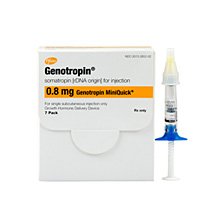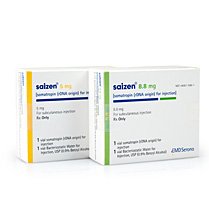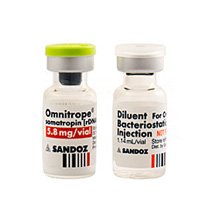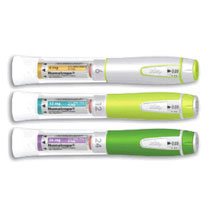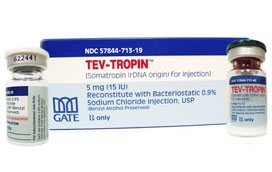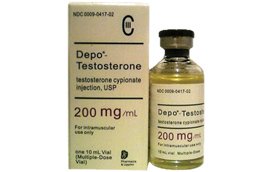Low HGH Levels: Identifying Adult Growth Hormone Deficiency

Growth hormone (GH), also known as somatotropin, is one of the body’s essential chemical messengers. The hormone influences brain functions, heart health, immunity, metabolism, cell regeneration, and much more. Human growth hormone (HGH) is another name for this chemical produced by somatotropic cells in the anterior pituitary gland. When an adult has low HGH levels, he or she may become more susceptible to other health issues, including osteoporosis, type 2 diabetes, and cardiovascular disease.
Identifying the markers of low growth hormone levels in adults is critical as early intervention can help reduce the risks associated with more dire health issues. The sooner an adult can receive treatment for growth hormone deficiency (GHD), the quicker the reversal of any symptoms.
In the sections below, we examine in further detail the following:
- The definition of adult growth hormone deficiency
- The causes of low HGH levels in adults
- Identifying symptoms of growth hormone deficiency
- The diagnostic process
- Treatment options for low growth hormone levels in adults
Untreated low HGH levels in adults can increase the risk of more severe health issues.
What Is Adult Growth Hormone Deficiency?
GHD is a condition that results from having low levels of growth hormone in adults. The hypothalamus regulates growth hormone secretion from the pituitary gland. Any problem along that pathway can result in the pituitary decreasing production of growth hormone.
Once normal adult height is achieved, often by a person’s early twenties at the latest, the body senses that there is no longer a need for as much GH as during puberty. Production slows down slightly and continues to decrease throughout life.
However, the body still needs an adequate supply of growth hormone to maintain many other functions. A deficiency occurs when low HGH levels make it impossible for all the body’s GH receptor cells to receive enough of the chemical to carry out their actions.
In men and women, low growth hormone levels are classified as either childhood-onset or adult-onset, depending on when they were first diagnosed. Some adults who received HGH therapy as children continue to need it throughout their lives. Others may no longer require treatment as adults. For people who develop the condition later in life, due to one of the causes in the next section, either short-term or long-term treatment may be necessary.
What Causes Growth Hormone Deficiency in Adults?
Low levels of growth hormone can take many years to manifest, or they can come on suddenly. The rapid development of the signs of low HGH levels is often caused by a head injury, tumor in the hypothalamus or pituitary gland, or the surgical or radiation treatment of the tumor. A medical condition resulting in the loss of blood supply to the head can also lead to the rapid onset of GHD symptoms.
What causes low HGH levels when these issues are not present?
Other causes of growth hormone deficiency in adults include:
- Leukemia
- Genetic abnormalities such as Turner syndrome or Prader Willi syndrome
- Childhood cancer
- Stroke
- Conditions such as meningitis
- Underactive hypothalamic activity
- Some autoimmune diseases
- Certain medications
Because growth hormone levels naturally decline with age, it could be said that GHD is to be expected. However, that is not necessarily the case. The human body adjusts to changes in many hormone levels throughout life. It is only when a hormone level is too high or too low that issues occur. Lack of exercise, poor sleep, stress, weight gain, and unhealthy dietary choices can also impact HGH levels.
Is It Inherited?
GHD is not an inherited condition, per se, but family habits may increase the susceptibility. If a child grows up in a home where the inhabitants rarely engaged in exercise, consumed high quantities of sugary, fatty foods, and did not get enough sleep, there might be a familial tendency to develop growth hormone deficiency later in life.
What Are the Symptoms of Adult Growth Hormone Deficiency?
Identifying the clinical features of low HGH levels is somewhat tricky, and these symptoms of low growth hormone levels in adults mimic many other health concerns. For example, high LDL and total cholesterol are signs of GH decline. Still, doctors often take them at face value, telling a patient to take actions or medications to lower overall cholesterol. These responses do nothing to address a possible underlying GHD situation.
More often, it is up to the hormone specialist to look at all of a person’s symptoms to determine if they align with GHD or another hormonal imbalance.
Low HGH levels symptoms include:
- Increased central adiposity and overall body fat
- Reduced muscle mass, strength, and function
- Decreased bone mineral density
- Insulin resistance and higher blood glucose levels
- Elevated blood pressure
- Low HDL cholesterol
- High LDL and total cholesterol
- Reduced exercise capacity
- Sagging skin and wrinkles
- Thinning or balding of hair
- Brittle nails
- Joint pains and muscle stiffness
- Low sex drive and diminished pleasure
- Vaginal dryness and atrophy in women
- Hot flashes and night sweats
- PMS symptoms
- Loss of morning erection and erectile dysfunction in men
- Forgetfulness
- Poor concentration
- Impaired cognitive processing and learning
- Increased anxiety and stress
- Irritability and mood swings
- Depression
- Frequent or longer-lasting illnesses
- Slow recovery from injury or exercise
- Lack of sleep
- Social isolation
- Increased sensitivity to hot and cold
- Fatigue and lack of endurance
- Poor circulation
Taken alone, each of the warning signs above can signify many health issues. Together, or at least when a few symptoms of low HGH levels are present, they send warning signs easily identifiable to hormone specialists.
How Do Doctors Diagnose Adult Growth Hormone Deficiency?
When a person has multiple low levels of HGH symptoms, a hormone specialist can determine if blood analysis is in order. You cannot diagnose GHD without performing blood tests of various hormones and other serum levels.
The diagnostic process to determine low HGH levels consists of the following:
- A detailed consultation to discuss the symptoms present along with any other health concerns
- Blood analysis via a sample collection at a local laboratory
- Physical examination to rule out other potential causes and health issues
- Completion of a comprehensive medical history questionnaire, providing information about past and present health issues, medications, supplements, vitamins, and treatments
After a thorough review of the results, the hormone specialist can then determine if a person has low levels of HGH. Any treatment protocol will be addressed in a follow-up consultation.
How Do You Treat Adult Growth Hormone Deficiency?
In some cases, when GHD is caught early, a person may only need to make some lifestyle changes that can help increase natural growth hormone production. These changes include:
- Getting between 7 and 9 hours of sleep each night to maximize growth hormone release and usage
- Lowering stress to reduce cortisol buildup in the bloodstream
- Engaging in a regular exercise routine which can stimulate increased daytime GH secretion
- Losing weight to helps boost GH levels
- Incorporating intermittent fasting into one’s diet a few times a week to stimulate more growth hormone secretion
When these changes do not bring desired results, or when multiple symptoms of low HGH levels are present, treatment may be necessary.
What are low HGH levels treatment options for adults?
The most common and effective low levels of growth hormone treatment include:
- HGH therapy – daily HGH injections administered at night boost growth hormone levels and provide the fastest results
- Secretagogue therapy – the use of ipamorelin or sermorelin injections increases the amount of growth hormone secreted from the pituitary gland
HGH therapy is the primary treatment for adult GHD. However, the use of secretagogues can help in the early stages of decline by increasing growth hormone production. Because these results take longer, it is not the best option for individuals suffering from multiple GHD symptoms. In some cases, a combination treatment approach may also be beneficial.
To learn more about low HGH and treatment options, please contact Greenberg Health for a free, confidential consultation by phone.


















 Norditropin
Norditropin